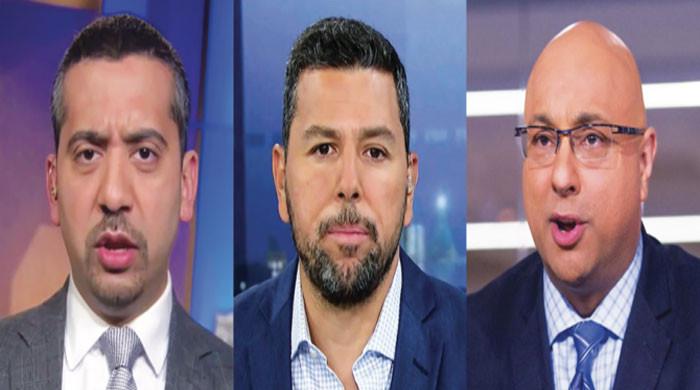A controversial move by the US news network MSNBC has come under scrutiny in the midst of escalating tensions in the Gaza Strip. The network has suspended the shows of three Muslim anchors, Mehdi Hasan, Ayman Mohieddine, and Ali Velshi, leading to a flurry of discussions and concerns.
The decision to suspend these anchors’ shows comes in the backdrop of heightened tensions resulting from an attack by Hamas, an organization based in Gaza, on Israel, according to the Arab News.
However, after the Hamas attack, Israel declared a war on the Palestine resistance group but the innocent people living in Gaza are bearing the brunt of continued shelling by the Israeli forces.
The persistent shelling in Gaza has turned the building into rubble, killing Gazans in large number. The besieged Gazans have no food and shelter. The conflict has sparked global concern, widespread protests for Palestine and media attention.
While MSNBC vehemently denies any sidelining of Hasan and Mohieddine, two sources closely involved with the network’s decision have confirmed the suspension of these Muslim anchors’ shows.
This development has sparked a debate, raising questions about potential religious targeting.
Critics have drawn parallels to the post-9/11 era, characterized by the “you are either with us or against us” rhetoric. They argue that this controversy transcends political differences and instead targets anchors based on their religious faith.
A source closely associated with the network stated, “There is a lot of uncertainty about what happens next. But the mood is very similar to what had happened post-9/11 with the whole ‘you are either with us or against us’ argument.”
As of now, MSNBC has refrained from issuing an official comment regarding the suspension. The future of these anchors at the network remains uncertain, leaving room for speculation about the network’s motivations.
This controversy surrounding the suspension underscores the significance of upholding journalistic ethics and impartiality, particularly during times of conflict and crisis. News organizations have a crucial role in providing balanced and unbiased reporting. Suspending anchors based on their faith raises concerns of potential discrimination and partiality.
While Ali Velshi continues to report from the field in other shows, the fact remains that the shows of these three Muslim anchors have been suspended, which has piqued public interest.
The situation has triggered a broader discussion about media ethics and the responsibility of news networks to deliver fair and impartial coverage, regardless of the personal backgrounds of their anchors.
In the midst of the ongoing Gaza crisis, this controversy adds an additional layer of complexity to an already sensitive issue – reporting on a conflict that continues to evolve and capture the world’s attention.

